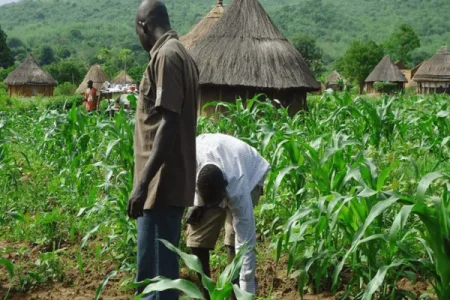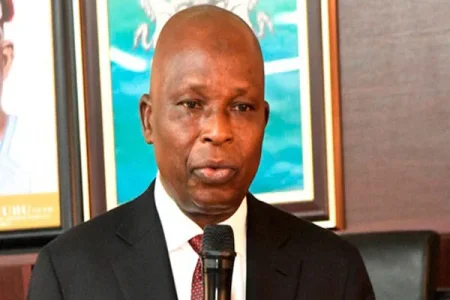
Farmers in Northern Nigeria are facing a distressing situation, revealed in a recent SB Morgan Intelligence report. They are compelled to pay steep fees, ranging from N70,000 to N100,000, to access their farmlands during planting and harvest seasons. Non-compliance leads to severe consequences, including forfeiting harvests, abductions, and even death.
This alarming trend reflects the widespread security crisis in Northern Nigeria, where non-state actors control areas lacking adequate state security officials. The report highlights Kaduna as a hotspot, with communities like Kidandan, Galadimawa Kerawa, Sabon Layi, Sabon Birni, and Ruma significantly affected. Residents report paying substantial sums for permission to farm, facing additional charges for harvesting. Resistance results in dire outcomes, such as abduction, murder, or confiscation of produce.
The report details various payment forms demanded by bandits, revealing that in Zamfara, the amount depends on the crop type. Rice farmers pay up to N120,000, while guinea corn farmers pay N50,000 as farm levies. Payment methods include cash or proceeds from harvests, with higher levies during the harvest season. Bandits also employ tacit slavery, forcing communities to grow and sell crops for them.
Between November 2020 and November 2023, farmers in the North-west states faced levies totaling N224.92 million from different bandit groups, resulting in abductions, deaths, and mass displacement.
The insecurity crisis in North-west Nigeria, a major food belt, resonates across the economy, causing increased food prices, supply shortfalls, and discouraging agricultural investments. This insecurity exacerbates Nigeria's ongoing food security crisis, with January 2023 food inflation at 35.41%. The consequences are felt profoundly, with a significant population living below the poverty line, stagnant wages, and increasing protests and attacks on food-related infrastructure, especially in the north.
The Cadre Harmonisé (CH) analysis predicts that around 26 million Nigerians will face hunger during the lean season of 2024 (June to August). The World Bank's food security report warns of severe food crises in seven states across the North. As the nation grapples with these challenges, Northern Nigeria's farmers are ensnared in a perilous cycle, trapped between the quest for agricultural survival and escalating bandit demands, deepening the humanitarian and economic crises in the region.




